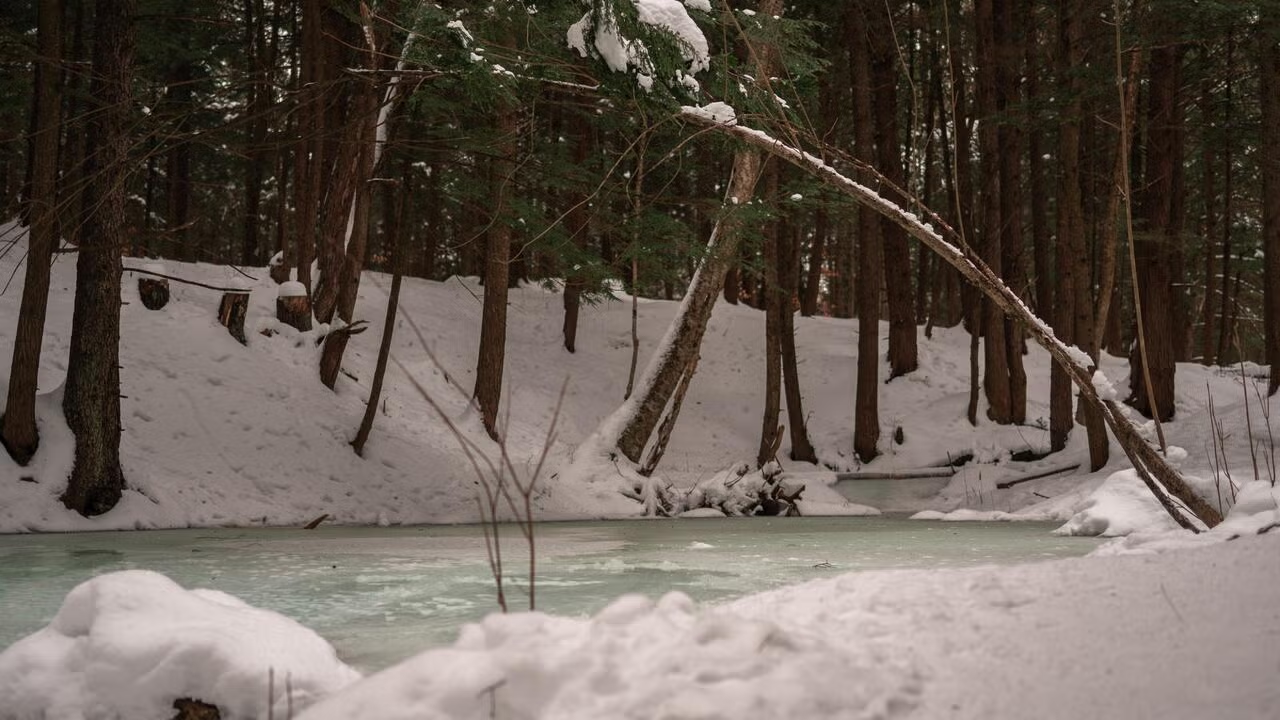
Wetlands under threat
Waterloo professor, Rebecca Rooney, discusses the value of wetlands and the risk they face in Ontario

Waterloo professor, Rebecca Rooney, discusses the value of wetlands and the risk they face in Ontario
By Angelica Marie Sanchez University RelationsThursday, February 2 marks World Wetlands Day, an international government agreement acknowledging the importance of wetlands and their ecological role in conserving our ecosystems.
“Wetlands are these climate change superheroes,” says Dr. Rebecca Rooney, a wetland ecologist and professor in the Department of Biology. “Wetlands are a portfolio of ecosystem services: including flood prevention, breaking down pesticides, storing large amounts of carbon, and provide habitat for more than 32 per cent of Ontario species at risk who rely on these wetlands to mitigate climate change.”
Canada is home to 25 per cent of the world’s wetlands. But according to Rooney, Canada has lost more than 60 per cent of our wetlands over the years. In agricultural areas, wetlands have been drained to make space for farming. While in urban and suburban areas, Canada has lost the majority of its wetlands due to them being drained for housing development.
Stormwater ponds are engineered solutions created to effectively replace wetlands across Ontario. However, these ponds only address some of the problems including flood prevention, but they need to provide the full portfolio of ecosystem services that wetlands provide.
The impact of Bill 23 on wetlands in Ontario
The More Homes Built Faster Act, formerly known as Bill 23, aims to address the housing crisis in Ontario through a series of changes to the Conservation Authorities Act, the Planning Act, the Municipal Act and other legislation that governs housing developments and nature conservation in the province.
This bill was passed on November 28, 2022. Associated with Bill 23 were 15 additional proposals on the Environmental Registry of Ontario, including changes to the boundaries of the Greenbelt, which rendered 15 parcels of land totalling 7,400 acres available to housing developments. The proposals posted to the Environmental Registry of Ontario also included changes to the Ontario Wetland Evaluation System, which is the instrument the provinces uses to determine whether a wetland gets classified as provincially significant.
“One of those proposals addresses the Ontario wetland evaluation system, where all wetlands in Ontario get assessed to determine if they are provincially significant,” says Rooney.
“If the wetland is provincially significant, then they are protected from being developed on. If they are not provincially significant, then they may be subject to development. Unfortunately, the changes that are being proposed to the Ontario wetland evaluation system will dramatically undermine its efficacy and endanger wetlands across Ontario," says Rooney.
Rooney explains how the Ministry of Natural Resources and Forestry currently provides training for those who manage the Ontario wetland evaluation system. But the proposed changes will transfer the responsibility to all municipalities, who may need more proper resources and funding to properly maintain the Ontario wetland evaluation system and in turn, little pockets of wetlands will be evaluated independently.
“There is a huge amount of scientific evidence that connects these pockets of wetlands into a whole integrated network,” says Rooney. “If you start chipping away at the wetlands and you destroy one piece of it, the whole network is going to suffer under the current proposals.”
Rooney encourages people to act by learning more about the Act and its impact on Canada’s wetlands. While housing continues to be a crisis in Ontario, Rooney emphasizes other different ways we can approach housing developments with more affordable and sustainable solutions so we can protect our wetlands and their crucial role in conserving our ecosystems.
Listen to the full interview with Rooney
Rebecca Rooney appeared on the Beyond the Bulletin podcast to discuss the value of wetlands, the actions she is taking to protect them and the recent passing of Bill 23.

Read more
And a new model for how quantum research is shared — opening doors for the next generation of scientists and entrepreneurs

Read more
Here are the people and events behind some of this year’s most compelling Waterloo stories

Read more
Meet five exceptional Waterloo graduate students crossing the convocation stage as Class of 2025 valedictorians
The University of Waterloo acknowledges that much of our work takes place on the traditional territory of the Neutral, Anishinaabeg, and Haudenosaunee peoples. Our main campus is situated on the Haldimand Tract, the land granted to the Six Nations that includes six miles on each side of the Grand River. Our active work toward reconciliation takes place across our campuses through research, learning, teaching, and community building, and is co-ordinated within the Office of Indigenous Relations.